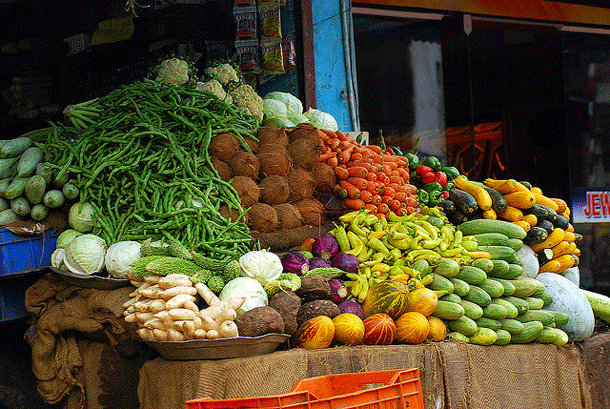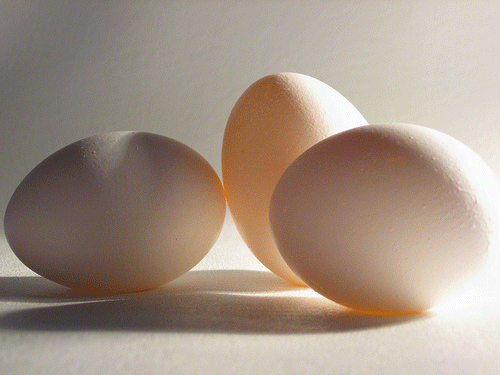As the Meijer Dietician and Healthy Living Advisor for Indiana and Northwest Ohio, Melissa Hehmann is qualified to give nutritional advice to people with all sorts of specialized needs. While athletes may not be the first group that comes to mind as far as populations with special dietary requirements are concerned, athletes have caloric and nutritional needs that are specific to their sports and training regimens, and must take this into consideration when it comes to food selection.
Like everyone else, athletes should eat a variety of foods with a focus on whole grains, lean meats and fish, low-fat dairy, nuts and seeds, and plenty of fruits and vegetables. However, the list Melissa provided of five essential foods for athletes pays heed to the nutritional and caloric necessities that accompany participation in sports.
1. Beans and Lentils
Beans and lentils are staples of the Mediterranean Diet, which is a popular diet built around plant-based food sources. And, when you analyze what beans and lentils do for the human body, it’s easy to understand why Melissa included them on a list of essential foods for athletes.
“Beans and Lentils are a nutrition superpower for athletes,” Melissa said. “They are packed with carbohydrates – the main source of energy for endurance athletes. They also provide protein that aids in muscle repair.”
2. Yogurt and Kefir
When dairy products like yogurt and kefir are mentioned, they are commonly lumped in with other milk-based products as if they are all created equally. They’re not. Once you understand what separates yogurt and kefir from the other items in the dairy aisle, you will also be able to grasp why athletes should be eating regular helpings of both.
“Yogurt and Kefir are fermented dairy foods that contain probiotics, which are beneficial bacteria than can support a healthy gut,” Melissa explained. “They have also been shown to improve immune function. This is important for athletes as training can have a suppressive effect on the immune system putting them at risk for illness and losing valuable training time.”
3. Eggs
Eggs are a very popular protein source, but many athletes choose to forego eating the incredible, edible egg in favor of meat proteins they might consider more conducive to packing on muscle. However, Melissa says that athletes who choose this option won’t be able to enjoy one of the overlooked benefits that egg eaters enjoy.
“Eggs are a good source of iron, which is essential to deliver oxygen to working muscles,” Melissa said. “They also contain leucine, an amino acid that has been shown to aid in muscle growth and repair. Eggs contain significantly more leucine than most other protein sources.”
4. Fruits and Vegetables
You knew these were going to make it onto the list, didn’t you? Well, it’s hard to argue against what works, and fruits and vegetables have been staples of a healthy diet forever simply because their value to the body is unmatched. Considering how beneficial they are in general, Melissa shouldn’t need to explain why fresh fruits and vegetables are required eating for athletes, but she did anyway, just in case you needed a little extra incentive.
“Fruits and Vegetables are essential to anyone, but the high levels of antioxidants found in these plant foods can fight the oxidative stress that athletes undergo with training,” Melissa said. “The key to obtaining a wide array of antioxidants is by consuming a variety of fruits and vegetables.”
5. Salmon
They say if you give a man a fish, you’ll feed him for a day, but if you teach a man to fish, you’ll feed him for a lifetime. Well, the added benefit to this is the man will also have a longer life, because he’ll reap the benefits that come with eating all of that fish. Salmon, in particular, offers a lifetime full of competitive advantages to athletes that eat it on a regular basis.
“Salmon and other foods high in Omega-3 Fatty Acids like mackerel, trout, walnuts, flaxseeds, and seaweed should be included on any athlete’s grocery list,” Melissa insisted. “Omega-3 Fatty Acids have been shown to reduce inflammation that can hinder athletic performance. These foods also have the benefit of being good sources of protein and iron.”
Melissa Hehmann, RD, CDE, ACE-CPT – Healthy Living Advisor for Meijer
The Meijer State Games of Michigan is a multi-sport, Olympic-style event(s) that welcome athletes regardless of age or ability level. The Games embody the values of participation, sportsmanship and healthy living.
Interested in our Summer Games?
www.StateGamesofMichigan.com/summergames
Interested in our Winter Games?
www.StateGamesofMichigan.com/wintergames








